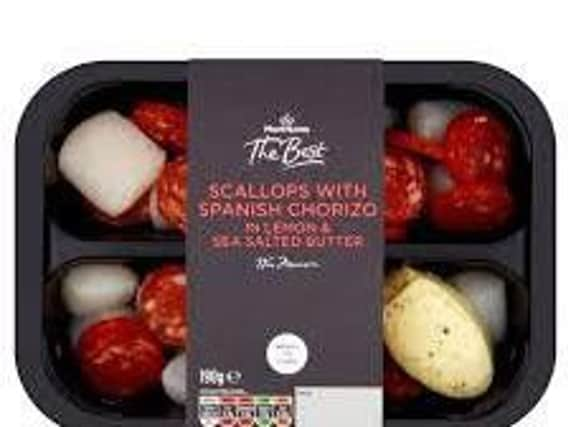Own label brands boost Morrisons and Asda


Both Bradford-based Morrisons and Leeds-based Asda have benefited from increased demand for own label products, with Morrisons seeing a 13 per cent jump in its premium own label brand “The Best”, according to Kantar Worldpanel.
At the other end of the price scale, Asda’s recently launched “Farm Stores” meat and produce lines are now finding their way into over a quarter of Asda’s baskets, generating sales of over £58m.
Advertisement
Hide AdAdvertisement
Hide AdFraser McKevitt, head of retail and consumer insight at Kantar Worldpanel, said: “Many mainstream retailers are prioritising own label as they want to offer shoppers cheaper goods. When inflation rises, shoppers are driven to own label.
“We know from the last recession, when times are tough people choose to eat in. It’s much cheaper to buy premium products than to go out.
“Morrisons’ premium line has always been under developed and now they are playing catch up.
“Asda took a long hard look at what Tesco did with own brands. In many ways they are looking to copy Tesco’s strategy. It doesn’t in any way suggest an inferior product. If people are attracted to low prices and high quality, they will pick up their other shopping at Asda.”
Advertisement
Hide AdAdvertisement
Hide AdHe was speaking as Kantar Worldpanel said supermarket shoppers could soon start to see upward prices easing off one year on from the EU referendum.
Like-for-like inflation has stabilised at 3.2 per cent - the same rate of increase as this time last month.
Mr McKevitt said: “Robust market growth this year has been boosted by higher grocery inflation, but consumers will be pleased to hear that price rises are no longer accelerating. One year on from the EU referendum - which had a marked impact on the price of imported groceries - hard-pressed shoppers could soon start to feel upward pricing pressures ease.”
He predicts that inflation will peak at under 4 per cent over the next couple of months.
Advertisement
Hide AdAdvertisement
Hide Ad“This is presuming no other economic things happen. There is a whole host of unresolved issues around Brexit to get through,” he said.
Supermarkets benefited from June’s hot spell, with sales rising 3.9 per cent on last year.
Ice cream sales rose 34 per cent in June alone, while sales of suncare products increased by 40 per cent year on year as shoppers enjoyed the unexpected sunshine. Shoppers spent an additional £158m on alcohol over the 12-week period and fruit and vegetable sales rose 7 per cent to an extra £170m.
Mr McKevitt said: “June’s hot spell was good news for UK grocers, with sales particularly buoyant around the hottest June day for 40 years.”
Advertisement
Hide AdAdvertisement
Hide AdThe supermarket sector has seen market growth of more than 3 per cent for the fourth consecutive period, according to Kantar Worldpanel‘s figures for the 12 weeks to July 16.
Lidl was once again Britain’s fastest growing supermarket, increasing sales by 19.4 per cent, taking its market share to a record high of 5.1 per cent.
Aldi’s sales grew by 17.9 per cent, increasing its share of the market to 7 per cent. Both discounters have benefited from a rapid store opening programme.
Tesco, Sainsbury’s and Morrisons saw sales increases of 2.3 per cent, 2.2 per cent and 2.1 per cent respectively. Asda attracted an additional 398,000 new shoppers to increase sales by 1 per cent year on year.